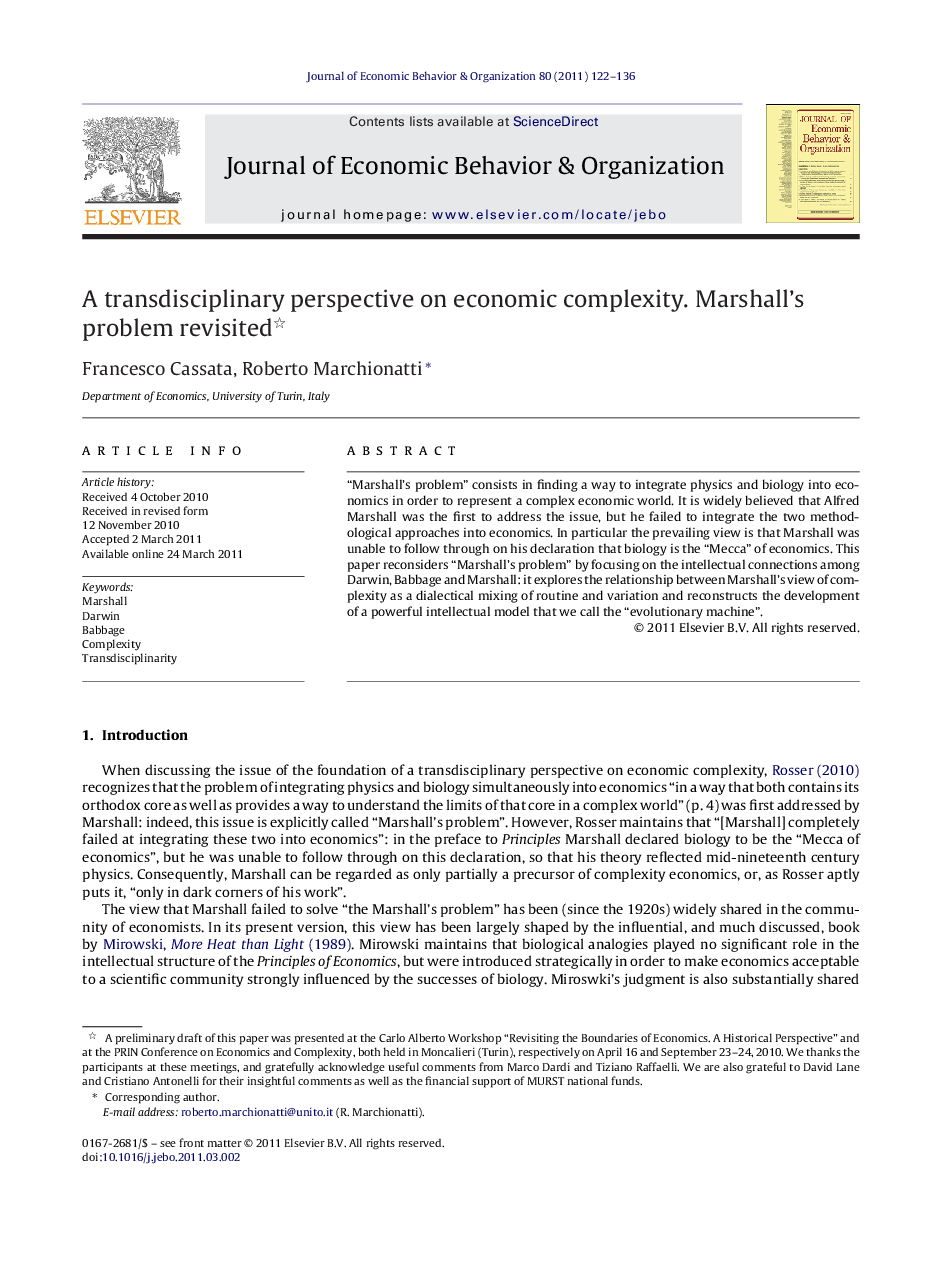| Article ID | Journal | Published Year | Pages | File Type |
|---|---|---|---|---|
| 883961 | Journal of Economic Behavior & Organization | 2011 | 15 Pages |
“Marshall's problem” consists in finding a way to integrate physics and biology into economics in order to represent a complex economic world. It is widely believed that Alfred Marshall was the first to address the issue, but he failed to integrate the two methodological approaches into economics. In particular the prevailing view is that Marshall was unable to follow through on his declaration that biology is the “Mecca” of economics. This paper reconsiders “Marshall's problem” by focusing on the intellectual connections among Darwin, Babbage and Marshall: it explores the relationship between Marshall's view of complexity as a dialectical mixing of routine and variation and reconstructs the development of a powerful intellectual model that we call the “evolutionary machine”.
► Alfred Marshall is an economist of the past who fascinates contemporary economists because of his lively awareness of the complexity of the interrelations among economic phenomena. Although shared by several eminent economists this awareness was progressively marginalised by what Bowles and Gintis (2000) called “the Walrasian detour” of economic theory in the twentieth century. In that context Marshall's work was split between an orthodox and a heterodox part, and the idea that Marshall was an old-fashioned economist and his heterodox approach a substantial failure became established. Recently, despite the increasing recognition in the community of economists that Marshall was an important precursor of the economics of complexity, there still persists the idea that Marshall's intuitions were not followed by an adequate theoretical–analytical structure. ► However, the evidence from the history of ideas in support of this seems rather weak. Contrary to the standard view, our reconstruction has shown that the theoretical part of Marshall's work is a successful attempt to integrate physics and biology simultaneously into economics, doing so within a framework which yields understanding of a complex world. ► Starting from a conception of complexity as a dialectic between order and transformation, Marshall developed a powerful intellectual model: the evolutionary machine. This sprang from an original synthesis between Darwin's theory of natural selection and Babbage's analysis of the development of machinofacture and the design of intelligent machines, and it was able to represent the economy as a complex interconnected system. ► This paper maintains that Marshall dealt with the question of the complexity of economic systems at a level that makes him not simply a precursor, but an economist who left an important epistemological and methodological legacy on the issue of complexity which should now be taken up by complexity theoreticians.
